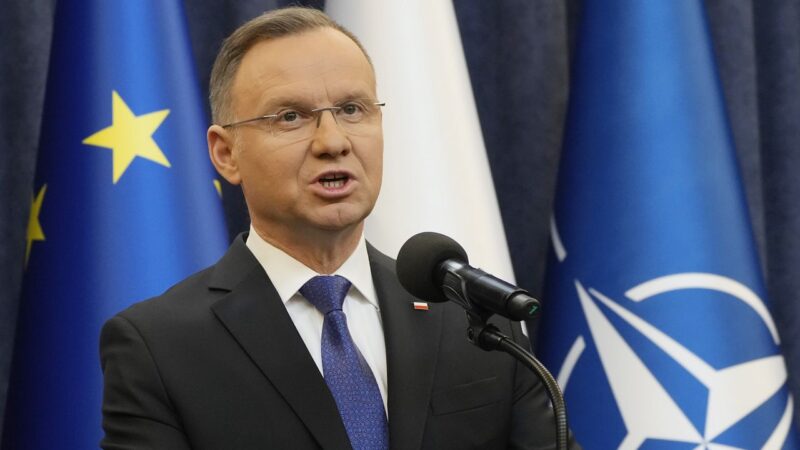In a candid interview with Euronews on April 24, Polish President Andrzej Duda suggested that Ukraine may need to swallow a bitter pill for the sake of peace, saying a lasting resolution with Russia will demand “compromises”—even if they leave both sides unsatisfied.
Duda, who’s long been a vocal supporter of Ukraine, now appears to be shifting gears. While emphasizing his continued solidarity with Kyiv, he made it clear that any meaningful peace agreement would involve concessions from Ukraine. “Neither side will walk away claiming victory,” he remarked, hinting that Ukraine, too, would need to “take a step back.”
But Duda didn’t stop there. He placed the weight of potential peace squarely on Washington’s shoulders—specifically those of former U.S. President Donald Trump. “There’s no one other than the United States who can stop Putin,” Duda asserted. He praised Trump’s resolve, claiming that if anyone could hammer out a deal and wrap up the war, it’s the former president.
Duda’s remarks come amid shifting dynamics in Poland’s own politics. With Prime Minister Donald Tusk now leading a more centrist government, Duda—closely aligned with the conservative opposition party Law and Justice (PiS)—has taken a more pragmatic tone. Although once unwavering in his support for Ukraine, recent tensions over wartime history and grain exports have clearly cooled relations.
And while he didn’t spell out what a peace deal should look like, Duda’s silence spoke volumes. Pressed for details, he kept his cards close to the chest, saying it was too early to describe “the shape of such a compromise.”
Meanwhile, Poland’s security relationship with the U.S. looms large in Duda’s agenda. He applauded the rotational presence of around 10,000 U.S. troops on Polish soil, calling it essential, and expressed his desire to see even more American boots on the ground. “I’ll be encouraging President Trump to send additional units,” he said, underscoring Poland’s strategic importance on NATO’s eastern flank.
That importance, however, may be in flux. The U.S. recently announced plans to shift its forces away from Rzeszów—Poland’s main logistical hub for Ukraine-bound aid—raising alarms in Warsaw. Rumors, first reported by NBC, suggest a full U.S. troop withdrawal from the region isn’t off the table.
Still, Polish leaders are banking on the country’s sky-high defense spending—now 4.7% of GDP—and major arms deals with the U.S., from Abrams tanks to F-35s, as leverage to keep American forces in place. U.S. defense figures have praised Poland as a model NATO ally, with Secretary Marco Rubio calling it “an example for other European nations.”
With his second and final term ending in August, Duda’s legacy may well hinge on how Poland navigates this turbulent chapter—caught between its own security priorities, uneasy ties with Kyiv, and a looming global power shift that could come with a Trump return.




